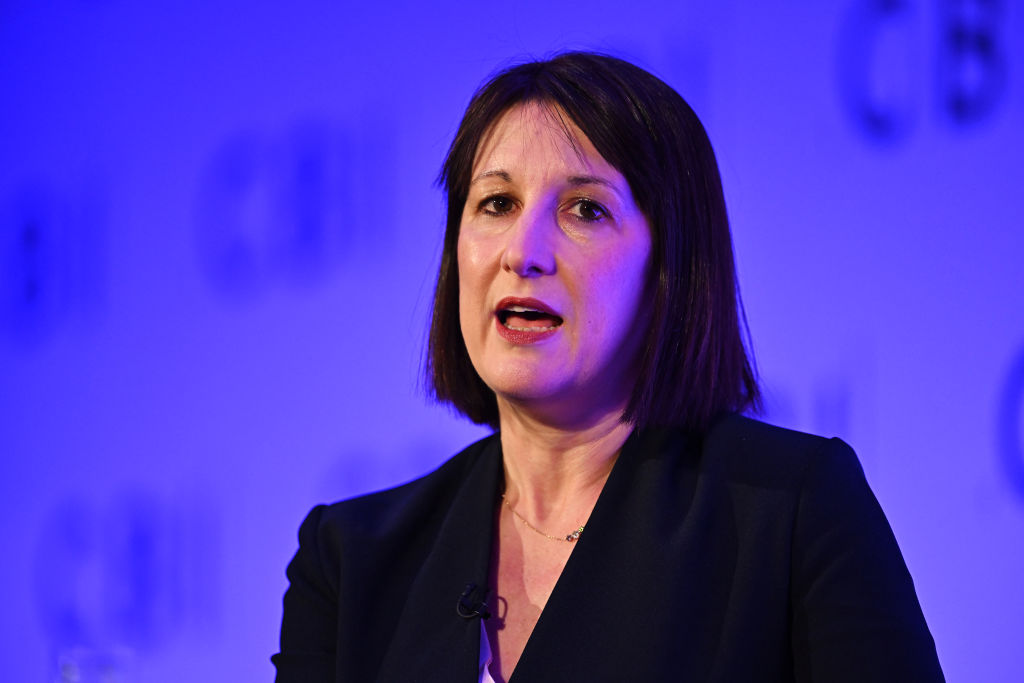M&S and Tesco among those warning of a £7bn Budget hit
Seventy-nine UK retailers have written to Chancellor Rachel Reeves about possible price rises and job cuts - here is what it means


Get the latest financial news, insights and expert analysis from our award-winning MoneyWeek team, to help you understand what really matters when it comes to your finances.
You are now subscribed
Your newsletter sign-up was successful
Want to add more newsletters?

Twice daily
MoneyWeek
Get the latest financial news, insights and expert analysis from our award-winning MoneyWeek team, to help you understand what really matters when it comes to your finances.

Four times a week
Look After My Bills
Sign up to our free money-saving newsletter, filled with the latest news and expert advice to help you find the best tips and deals for managing your bills. Start saving today!
Supermarkets have often been popular stocks, but Labour's increase in employer national insurance contributions could dent profits.
Seventy-nine UK retailers, including Sainsbury’s and Tesco, have written to Chancellor Rachel Reeves to hit out at last month’s Budget, saying the increase in employer national insurance contributions will add billions of pounds to their costs. It could also leave investors questioning whether they should invest in supermarkets.
The letter, which was co-ordinated by lobby group British Retail Consortium and also co-signed by Boots, Next and Marks and Spencer, warned that the NIC rise - as well as changes to the national living wage - would lead to £7bn of additional costs that would trigger job losses and higher prices for customers.
MoneyWeek
Subscribe to MoneyWeek today and get your first six magazine issues absolutely FREE

Sign up to Money Morning
Don't miss the latest investment and personal finances news, market analysis, plus money-saving tips with our free twice-daily newsletter
Don't miss the latest investment and personal finances news, market analysis, plus money-saving tips with our free twice-daily newsletter
“For any retailer, large or small, it will not be possible to absorb such significant cost increases over such a short timescale,” the letter said.
“The effect will be to increase inflation, slow pay growth, cause shop closures, and reduce jobs, especially at the entry level. This will impact high streets and customers right across the country.”
As part of the Budget, Reeves announced that the employers’ NI rate will rise from 13.8% to 15% from next April, while the threshold at which firms begin to pay the tax has been lowered from £9,100 to £5,000.
At the same time, minimum wages were increased, with hourly rates for over-21s set to go up to £12.21 an hour in April.
How will the NIC rise impact retailers?
A number of companies have come forward to complain about the government's change to NIC contributions since the Budget.
Earlier this month Asda said the tax amendments announced in the Autumn Budget would hit the retailer with £100m in extra costs. Chairman Lord Stuart Rose told shareholders the increase in employer taxes is “a big burden for business to carry”. He added that the supermarket will do all it can not to pass extra costs on to consumers, but it is likely to result in rising costs at the supermarket in some form.
Sainsbury’s, meanwhile, warned of a £140m hit, while Marks & Spencer said it would mean £60m in extra costs.
Sainsbury’s chief executive Simon Roberts said: “I don’t think you can shy away from the fact that, because of the changes in everyone’s cost base, it is going to feed through into higher inflation.
“This barrage of costs coming at us is significant and we’re an industry, a very efficient industry and intensely competitive, and there just isn’t capacity to absorb all of this.”
How could the NIC rise impact inflation and interest rates?
While retailers have been lining up to declare that the Budget changes will result in an increase in prices, the Office for Budget Responsibility agrees that the chancellor’s policies could increase inflation by around 0.4% at the peak.
This means that another rate cut in December looks unlikely, based on market expectations, with interest rates probably ending the year at 4.75%.
“The increases in government spending and investment announced in the Budget are taking place at a time when the economy is already operating close to capacity,” says Paul Dales, chief UK economist at the consultancy Capital Economics.
“In that situation, the faster rates of GDP growth we expect in light of the Budget will probably spill over into larger rises in prices than we previously thought,” he told MoneyWeek.
The team at Capital Economics was previously expecting inflation to average out at 2.6% in 2025 and 2% in 2026. They have now adjusted their inflation forecasts upwards slightly to 2.8% and 2.1% respectively.
Get the latest financial news, insights and expert analysis from our award-winning MoneyWeek team, to help you understand what really matters when it comes to your finances.
Chris is a freelance journalist, and was previously an editor and correspondent at the Financial Times as well as the business and money editor at The i Newspaper. He is also the author of the Virgin Money Maker, the personal finance guide published by Virgin Books, and has written for the BBC, The Wall Street Journal, The Independent, South China Morning Post, TimeOut, Barron's and The Guardian. He is a graduate in Economics.
-
 Should you buy an active ETF?
Should you buy an active ETF?ETFs are often mischaracterised as passive products, but they can be a convenient way to add active management to your portfolio
-
 Power up your pension before 5 April – easy ways to save before the tax year end
Power up your pension before 5 April – easy ways to save before the tax year endWith the end of the tax year looming, pension savers currently have a window to review and maximise what’s going into their retirement funds – we look at how
